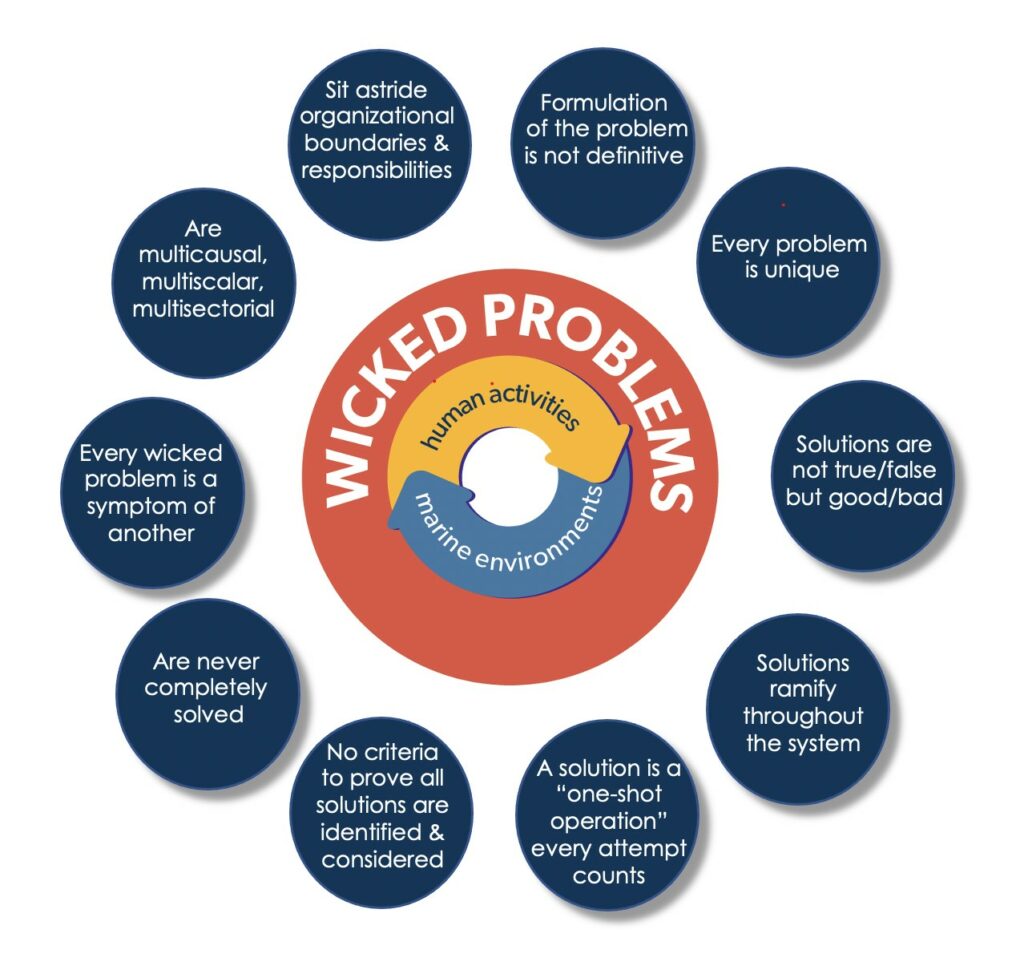
Wicked problems
Definition of ‘wicked problem’:
A ‘wicked problem’ is a challenging and urgent social problem, with numerous causes and effects, that involve a number of different stakeholders with different views, thus making it inherently difficult to solve. The term ‘Wicked problems’ was first discussed by Churchman 1967, and later defined and formalized regarding social and natural sciences by Rittel and Webber 1973. Paasche and Bonsdorff (2018) discuss examples of ‘wicked problems’ related to the sea and oceans, such as changes in the ocean engine – circulation and overturning, sea level rise, deoxygenation, and plastic pollution.

10 characteristics of ‘wicked problems’ identified by Rittle and Webber 1973:
- A lack of definitive formulation.
- No stopping rule that determines when a solution has been found.
- Good or bad solutions rather than true or false solutions.
- Lack of immediate and ultimate tests of solutions.
- Solutions are “one-shot” operations rather than trial and error.
- Lack of criteria that indicate all solutions have been identified.
- The uniqueness of every wicked problem.
- Any wicked problem could be viewed as a symptom of another problem.
- Any discrepancies in wicked problem can be explained in multiple ways.
- Planners have no right to be wrong in that they are responsible for outcomes that result from the actions they take.
Watch the video below where Marie Nordström explains how humans have had an impact on the Baltic Sea environment.
References:
Churchman (1967) Free for All. Management Science 14:141–146.
Paasche & Bonsdorff (2018) The wicked ocean. AMBIO 47:265-268.
Rittel & Webber (1973). Dilemmas in a general theory of planning. Policy sciences, 4:155-169.
Weber & Khademian (2008). Wicked problems, knowledge challenges, and collaborative capacity builders in network settings. Public Administration Review, 68:334-349.

